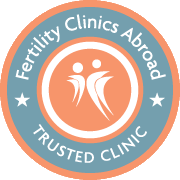Features in our Lab designed to increase your chance of pregnancy
by Petroula Tatsi, last updated 06 Sep 2023,
6 min read
Parenthood is a dream for many couples, and in vitro fertilization (IVF) is a beacon of hope for those facing infertility challenges. As IVF technology evolves, so do the features and capabilities of modern IVF labs. At Newlife IVF, our lab is equipped with cutting-edge technologies and specialized techniques are applied that significantly increase the chances of successful pregnancies. In this blog, we explore the key features of our IVF lab that enhance your likelihood of pregnancy.
-
Expert Embryologists: The expertise and experience of the embryologists are fundamental to IVF success rates. Qualified professionals who stay updated on the latest advancements in reproductive medicine can significantly impact the outcomes of fertility treatments. Our embryologists have a passion for their work, and each patient's unique needs are meticulously addressed, maximizing the chances of success. Our lab staff is also responsible for keeping track of success rates, have Key Performance Indicators (KPI) in place to measure the daily performance in the lab and identify areas for improvement. They continuously conduct research to implement cutting-edge techniques, which are crucial aspects of a successful IVF lab.

-
Time-Lapse Technology: Our new Geri Time-Lapse Incubator is a revolutionary tool that has transformed the way embryos are monitored during IVF. This advanced incubator provides a stable and controlled environment for embryos while capturing continuous images at regular intervals, even remotely, and creates your embryos' first video. This feature eliminates the need to move embryos out of the incubator to evaluate them. By carefully observing the embryo's development, embryologists can identify crucial developmental milestones, and due to the vast amount of data that it provides, combined with artificial intelligence, it will help us predict with more accuracy which embryos can implant successfully and give a full-term pregnancy.

-
Preimplantation Genetic Testing (PGT): Preimplantation Genetic Testing (PGT) is an advanced technique that is efficiently applied in our lab and allows embryologists to analyze embryos for genetic abnormalities before embryo transfer. PGT helps identify chromosomal or genetic defects, enabling the selection of genetically healthy embryos for transfer. By minimizing the risk of implanting embryos with genetic issues, PGT significantly enhances the chances of a successful pregnancy and reduces the likelihood of miscarriages.

-
Blastocyst Culture and Transfer: In the past, embryos were typically transferred to the uterus within 2-3 days post fertilization. However, advancements in IVF have allowed for extended culture to the blastocyst stage. The blastocyst is the stage reached by the embryo on day 5-6 post-egg collection. This is the final developmental stage prior to implantation in the uterus, which signals the start of a pregnancy. It is the last day that embryos can survive in the lab. Blastocyst transfer increases the likelihood of pregnancy, as it allows embryologists to observe the embryos' development for a longer period, ensuring only the embryos with the best implantation potential are selected for transfer. It also provides further information regarding the general prognosis of a patient.
-
Quality control and lab conditions: Implementing strict quality control measures in our IVF lab ensures that all processes, equipment, and materials meet high standards. From the handling and preparation of gametes to the culture of embryos, each step must adhere to rigorous protocols. Regular quality assessments and internal audits can identify areas for improvement and maintain high standards throughout the IVF process. This includes regular maintenance and calibration of all equipment to ensure accuracy and consistency. The air quality and filtration system also play a pivotal role, as maintaining a controlled and clean environment is vital for embryonic development. HEPA (High-Efficiency Particulate Air) filters and carbon filters help minimize airborne contaminants, such as dust, microorganisms and volatile organic compounds and ensure air quality in the lab. Last but not least, temperature and humidity should be constantly controlled in an IVF lab in order to create a stable environment for embryo culture and storage. All these lab parameters are constantly monitored, and our embryologists are informed in real-time by SMS and/or email in case one crucial factor is disturbed to follow the appropriate steps and ensure recovery of the proper conditions and secure the embryos.
-
Egg, sperm evaluation and embryo culture conditions: A comprehensive assessment of egg and sperm quality before fertilization can help identify any potential issues and guide treatment decisions. After fertilization, embryo culture conditions play the most crucial role in embryo development and consequently success rates. So, advanced incubators with stable temperatures, gas concentrations (CO2 and O2), and pH levels are essential for the most optimal embryo culture conditions.

-
Cryopreservation: Cryopreservation allows for the preservation of oocytes, sperm and supernumerary viable embryos from a single IVF cycle. By efficiently applying vitrification and having suitable cryopreservation facilities, IVF labs can store these gametes and embryos for future use, offering patients the opportunity for subsequent cycles without the need for additional ovarian stimulation. This not only improves convenience for patients but also helps maximize their chances of success over multiple attempts.

-
Embryo Glue: Embryo glue is a special solution that contains hyaluronic acid and other components that promote embryo attachment to the uterine lining during the transfer process. This adhesive substance increases the chances of successful implantation, as it provides a supportive environment for the embryo to firmly attach to the uterus, improving the likelihood of a successful pregnancy.
-
Assisted Hatching: In some cases, the outer shell of an embryo, known as the zona pellucida, may be thick or hardened, making it difficult for the embryo to hatch and implant. Assisted hatching is a technique where a small hole is created in the zona pellucida to facilitate the embryo's hatching process. This procedure may be beneficial for older women or those with previous failed IVF attempts, as it improves the embryo's ability to implant successfully.
-
Personalized Treatment: Every patient's fertility journey is unique, necessitating personalized treatment plans tailored to their specific needs. At Newlife, we emphasize individualized care and take into account factors such as age, medical history, and previous treatment outcomes. By crafting custom treatment plans, the chances of successful embryo implantation are optimized, leading to higher success rates and patient satisfaction. In addition, daily communication between the IVF lab team and patients builds trust and ensures that patients understand the process and requirements for a successful outcome.

Embarking on an IVF journey can be both exciting and challenging, but with the aid of cutting-edge technologies and the expertise of experienced professionals, the chances of a successful pregnancy are significantly increased. Remember, each IVF journey is unique, and while these features offer remarkable advancements, it's essential to consult with a fertility specialist to determine the best approach tailored to your specific needs. With determination, hope, and the support of Assisted Reproductive technologies, the dream of welcoming a baby into your life may soon become a beautiful reality.
If you would like us to assess your case and offer you an individualised treatment that will lead to the creation of your family, please contact us.

Petroula Tatsi, BSc, MSc
Petroula is a Clinical Embryologist and a member of the scientific team of Newlife IVF Greece.











